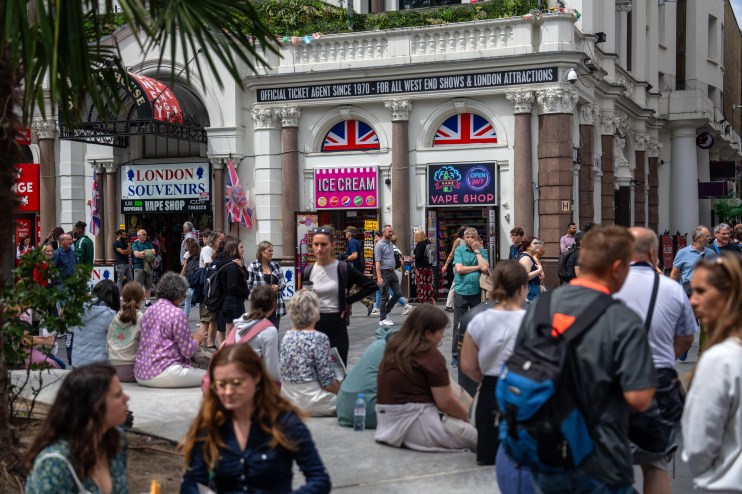London’s economy is a microcosm for our success but we’re ignoring ways to help it

Businesses across the country have had a tough five years – whether they are big or small, in London or the North, and in almost every sector. The combined impact of adjusting to Brexit, the pandemic and inflationary surges triggered by global conflict have all contributed to strained bottom lines, difficulty hiring staff and nervous customers. A mounting tax burden has not helped, even where business owners can accept that the country faces difficult times and higher costs are necessary to address them.
The Chancellor has an opportunity to help when he delivers his Autumn Statement next week. Nobody expects across the board tax cuts at a time when inflation remains too high and the country has borrowed huge amounts of money to pay for things like furlough and energy bill support – measures we recognise played an enormous role in supporting businesses across the country.
But targeted measures can have a real impact. London’s West End is a microcosm of much of the wider economy: it has small independent businesses in sectors such as food, big high street chains in its bars and retail, significant international businesses in hotels and cultural icons in theatres, museumsand galleries. It generates three per cent of the UK’s economic output.
The West End is on the right track to recover to pre-covid levels, but there is still much to do to reach its full potential.
Spending by US tourists has recently doubled in Spain and France
Restoring tax-free shopping for international travellers would have a major impact – an impact in London, yes, but also in all of the UK’s great cities. Scrapping the benefit for touristsin 2021 was a major blow and ensures that our cities stand apart from almost all of their international peers. The data shows that it has been a spectacular own-goal. Spending by US tourists has recently doubled in Spain and France. And Heathrow Airport estimates spending in the UK is only roughly at pre-pandemic levels. Far from being a revenue raiser for the Treasury, this slowdown in tourist trade is likely costing the Exchequer money. The CEBR estimates this policy would generate an extra £10.7 billion a year in increased economic activity, raising an extra £1.3 billion in tax revenue.
That money could help to extend reliefs on business rates and corporation tax, and stop inflationary rises squeezing businesses even harder. Reliefs in the aftermath of the pandemic were vitally important to some businesses, including the pub and restaurant trade which are so important to the unique ecosystem of London’s West End, and to the cultural sector, including through the Theatre Tax Relief. Short term reliefs are welcome – long term restraint and cuts would be even better. An effective online sales tax would help close the gap between bricks and mortar retailers, while funding these changes.
A final measure to encourage more people into central London would be new investment the arts and cultural sectors of the capital. Our capital city is an international icon with some of the greatest galleries, museums and theatres anywhere in the world – all of which contribute to bringing in visitors from near and far, spending money and having enriching experiences.
Despite the success of our venues, Arts Council funding has fallen in recent years and London’s marketing spend on the arts is just £6 million a year – compared to £9 million in Paris, £29 million in New York and a staggering £80 million in Hong Kong. With the Theatre for Every Child campaign, we can help the next generation to experience our world-leading theatre. For relatively small sums we can ensure that the heart of London can keep up, bringing in more visitors and revenue that will support businesses and have a positive impact on the economy.
Wednesday’s Autumn Statement is an opportunity to make changes that can support businesses in every part of the country, further elevate the heart of London against its international peers – and help Jeremy Hunt meet his financial targets by increasing footfall and revenues. That seems like a win-win.